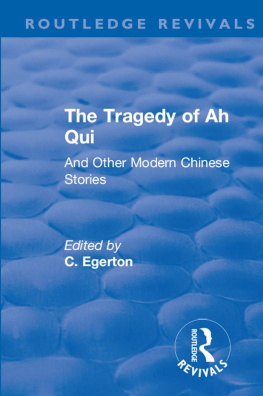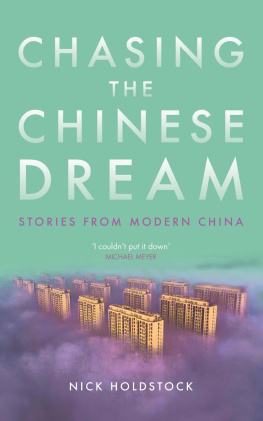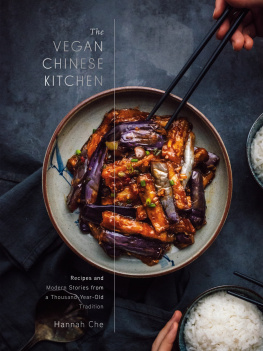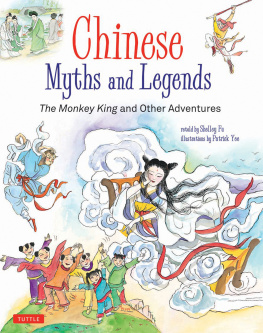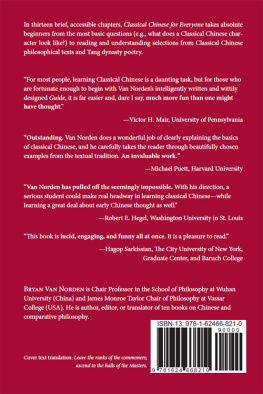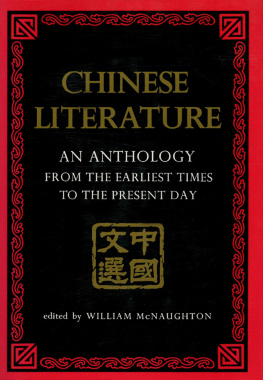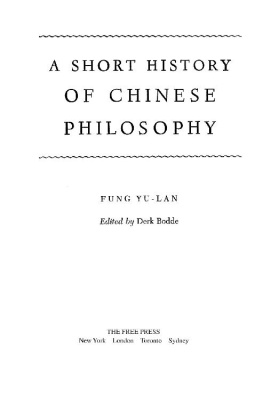Routledge Revivals
The Tragedy of Ah Qui
The Tragedy of Ah Qui
and Other Modern Chinese Stories
Translated from the Chinese by
J. B. KYN YN YU
and from the French by
E. H. F. MILLS
First published in 1930 by Routledge
This edition first published in 2018 by Routledge
2 Park Square, Milton Park, Abingdon, Oxon, OX14 4RN
and by Routledge
711 Third Avenue, New York, NY 10017
Routledge is an imprint of the Taylor & Francis Group, an informa business
1930 Taylor & Francis
All rights reserved. No part of this book may be reprinted or reproduced or utilised in any form or by any electronic, mechanical, or other means, now known or hereafter invented, including photocopying and recording, or in any information storage or retrieval system, without permission in writing from the publishers.
Publishers Note
The publisher has gone to great lengths to ensure the quality of this reprint but points out that some imperfections in the original copies may be apparent.
Disclaimer
The publisher has made every effort to trace copyright holders and welcomes correspondence from those they have been unable to contact.
A Library of Congress record exists under ISBN: 31034442
ISBN 13: 978-1-138-55833-5 (hbk)
ISBN 13: 978-1-138-56734-4 (pbk)
ISBN 13: 978-1-315-12402-5 (ebk)
The Tragedy of Ah Qui
THE GOLDEN DRAGON LIBRARY
Edited by C. EGERTON
THE GOLDEN DRAGON LIBRARY
The Wiles of Women
Turkish Stories
By J. A. DECOURDEMANCHE
The Porcelain Junk
A Romance of the Southern Ocean
By J. DELTEIL
The Book of the Marvels of India
Arabian Travellers Tales
The Shoji or Sliding Screen
By KIKOU YAMATA
The Tragedy of Ah Qui
and Other Modern Chinese Stories
The Tale of Pomegranate Flower
Translated from The Thousand Nights and One Night
by POWY MATHERS
GEORGE ROUTLEDGE & SONS LTD.
The Tragedy of Ah Qui
and Other Modern Chinese Stories
Translated from the Chinese by
J. B. KYN YN YU
and from the French by
E. H. F. MILLS
PRINTED IN GREAT BRITAIN BY HEADLEY BROTHERS,
18, DEVONSHIRE STREET, LONDON, E.C.2; AND ASHFORD, KENT
CONTENTS
EDITORS NOTE
T HE Editor feels that an apology is due for the romanisation of Chinese names employed in this little book. If it had been practicable to secure the Chinese originals of the stories included, the Wade transcription, invariably adopted by English scholars, would have been used, but, unfortunately, this was not so, and the French romanisation has been retained.
S OME friends in Europe, curious about the evolution of Chinese thought, have asked me for an Anthology of contemporary short story writers of my country.
I have collected and translated (as well as I could) these few tales. They are, for the most part, the work of students. Europeans will no doubt find in them one aspect of China. But China is so mysterious and so simple! There are men in this world who are calm, silent, and yet profound. The Chinese are like that. The good in them is not exposed to the light of day. They hide it conscientiously, modestly. They think intuitively. Their logic is primitive. Unexpected, rapid, unrelated to each other, their intuitive truths must be seized on the wing, on pain of escaping one for ever. They are also difficult to express. How much more so, then, to submit them to translation! If the Tao (truth) could be communicated says Shang Tse, the husband would communicate it to his wife and the father to his child. Books are the lees of the ancients. The Tao that can be expressed, says Lao Tse, is no more the real Tao. The Tao escapes the mill of logic, shuns the tumult of passion, and self-interest, and evades the permanent boredom of books. Sometimes it flashes out of its own accord in the thin white smoke of the bronze tripod, sometimes it bears the solitary fisherman silent company
The modern short story writers show us a new phase of China. Since the Revolution, the black-eyed sage is coming out of his mysterious self and is throwing himself from the heights of the Kun-Lun into the maelstrom of the world. Formerly a windowless monad, he now feels the fatal need of giving and receiving. He has in his library books in every language. It is more than ten years since, following the example of a professor, Mr. Hu-She, he determined to find a substitute for the old literary language which was too poetic, too concise, to flow into the moulds of logic, or to pass the lips of the proletariat, and so introduced into literature the spoken language, far easier and more convenient than its rival. This is the language which the students employ. But they are not writers, in the European sense of the word. The Chinese, we must note, are less artists than actors. They want to touch everything in the brief space of their lives. Monotonous activity bores them dreadfully. The novel was in old days no more than a literary form despised by the mandarins or Taoists. These latter acted and lived with the Tao. They wrote commentaries an the ancients, or wrought from time to time a few poems of incomparable beauty. Idlers of mediocre talent encumbered literature with their prolix anecdotes of djinns and demons. But go back to the works of Chang Tse, and you will find that his tales, if they too can be called tales, are so closely knit, so beautiful and so profound that a single one of them contains matter for the conduct and meditation of a lifetime. I recommend them particularly to all who are interested in the Chinese mind.
The modern story writers, most of them too young to have penetrated the labyrinth of the Tao, generally follow the currents of Europe and thus give evidence of an appreciable effort to widen their horizon.
Among them, I draw attention especially to Mr. Lu Siun, at one time a student in Japan, and recently Professor at the University of Pekin. He is an enemy of the Tao. But he understands it perhaps better than a great many Confucianists or Taoists. Whence comes this bitter hatred for the old Chinese way of thought (the unfavourable aspects of it) if not from the passionate interest which attaches him to the beloved one for whose perfection he longs? Every man finds his own lot bitter.
After vainly trying the remedies of Europe, which do not suit her disease, China, after a vast detour, will return to plunge into the depths of the Tao. I fear that the silent and mysterious Tao may ever escape the restless dreams of the black eyes.
KYN YN YU.
Lyons.
January, 1929
T HIS winter I used often to go and visit my friend Hu Wen Yueh in his little rooms in the alley of Konghiuen, where he would be indolently poking his fire. In truth I was drawn to him, not by the originality of his character, or his ideals of life or by any very important interest, but rather by his interminable chatter which covered the emptiness of my call. He was a young man of twenty-four or twenty-five, a good talker, lively, energetic, of remarkable practical ability. Behind his tortoiseshell glasses one could read a fine future smiling upon him.






